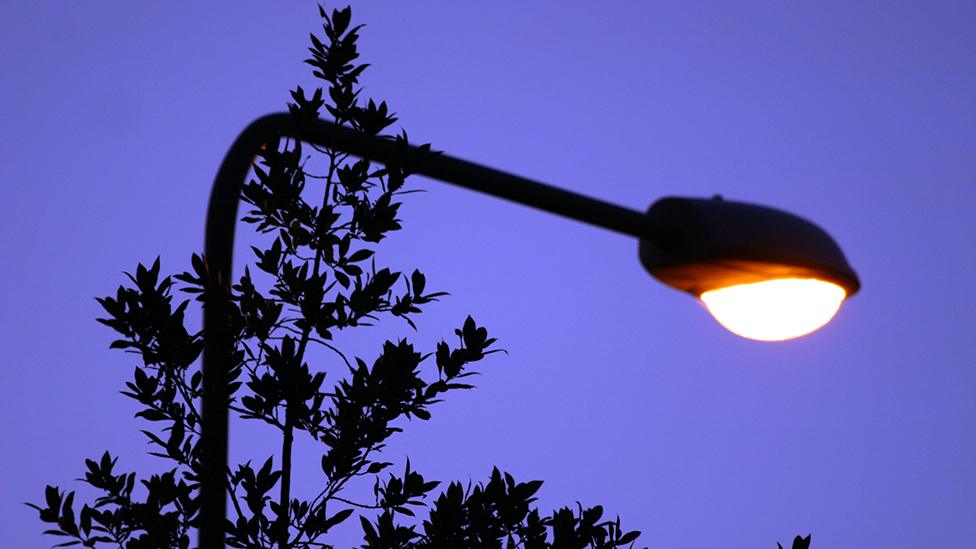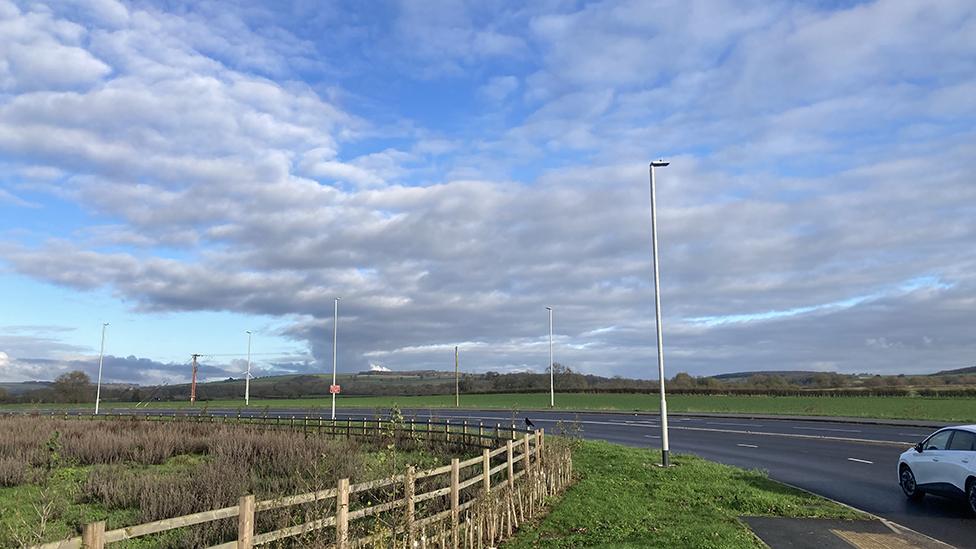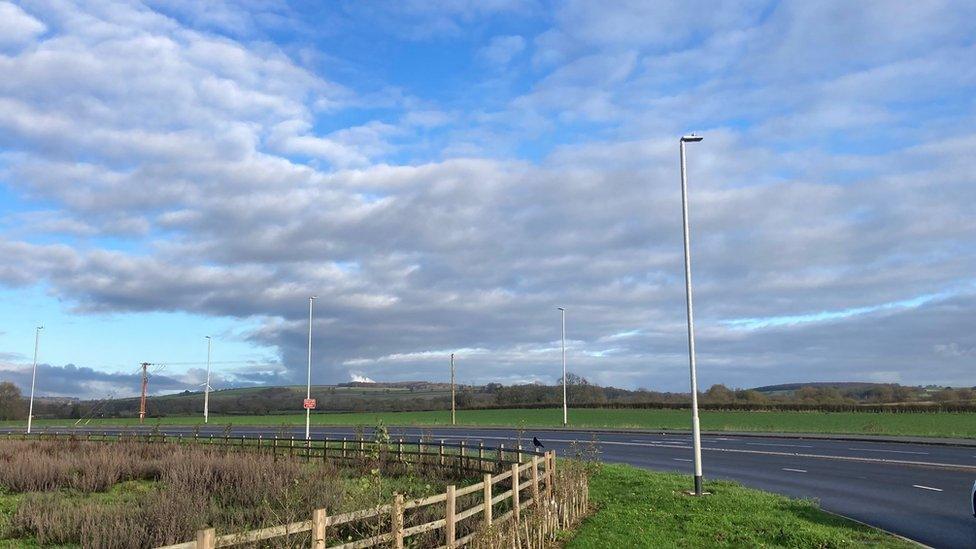Low-carbon street lights trialled in £4.6m scheme

The UK's 7.2m street lights produce one million tonnes of carbon emissions each year
- Published
A total of £4.6m is being spent on decarbonising roads in East Yorkshire.
The county will test low-carbon street lights and work to ensure traffic signs and road markings can be clearly seen by motorists.
The money is part of a £30m national scheme which includes making asphalt from grass cuttings and using technology to spot potholes.
East Riding of Yorkshire Council said its 40,000 streetlights and 2,300 illuminated signs cost £1.84m a year to power.
The UK's 7.2m street lights produce one million tonnes of carbon emissions each year.

The council spends £1.84m a year to power its street lights
Council leader Jonathan Owen said the East Riding was "leading the way" and the pilot scheme could lead to a change in the national guidelines.
"This will be the country's first ever major review of street lighting, and how people perceive and appreciate different types of lights and differing levels," he said.
"Britain's current road signs regulations were brought in in the 1960s, so it is high time they were reviewed and improved."
The trial will be along two of the county's busiest roads, the 31 mile (50km) stretch of the A1079 Hull to York corridor and the A164 and will be carried out in collaboration with the University of Sheffield.
The funding comprises £3.3m from the government and £1.3m from East Riding Council.
Follow BBC East Yorkshire and Lincolnshire on Facebook, external, Twitter, external, and Instagram, external. Send your story ideas to yorkslincs.news@bbc.co.uk, external.
Related topics
- Published23 November 2022
